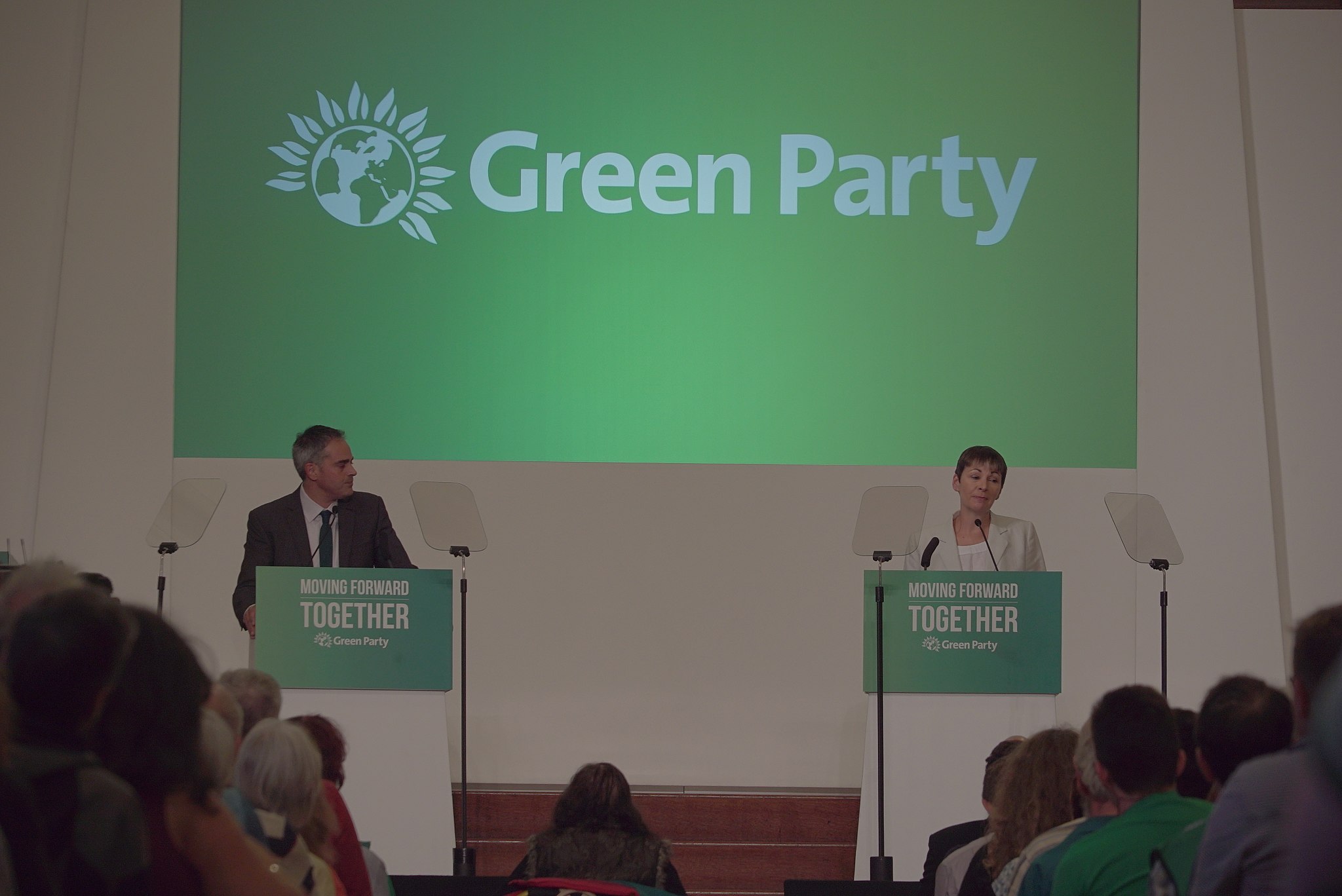The post-Brexit challenges facing the Greens

There is considerable discussion of how the Green Party should position itself following Jeremy Corbyn’s election as Labour leader, with Labour now appearing to have filled much of the political space which the Greens had previously occupied. There is, however, another strategic challenge for the party which is worth considering: the removal of the opportunity for British parties to contest elections to the European Parliament and send MEPs to Brussels.
This is most obviously problematic for the Green Party because, since 1999, its MEPs have provided the party with sources of publicity, credibility and funding- scarce resources for any smaller party. Indeed, partly for this reason the constitutional reforms of the late 1990’s, which included the introduction of a proportional voting system for European elections as well as the creation of devolved bodies in Scotland, Wales and Northern Ireland, were important precursors to the Green Party’s subsequent advances at Westminster elections.
Frequent elections are often seen as something of an inconvenience for parties, draining activists’ time and energy, and stretching limited funding. For smaller parties, however, they are often one of the few opportunities to get significant media attention and to attract members and supporters. In the case of the Green Party, having been formed in the early 1970’s it was the 1979 general election which really sparked the party into life. It stretched itself to stand at least 50 candidates in order to qualify for a party political broadcast and it was this, as well as the local campaigning activity, which brought the membership up from the hundreds to the thousands. The simple reduction in the number of elections taking place in the UK could therefore be a hindrance to the Green Party’s development.
European Parliament elections are also particularly congenial to small parties for two reasons. First, they are sometimes described as ‘second order’ elections which voters may approach differently to a general election. In European elections voters are often more willing to cast a protest vote against one of the major parties or make a selection based on an issue they would not normally prioritise, such as the environment. This dynamic partly explained the Green Party’s result in the 1989 European election, where it got almost 15% of the vote, dramatically increased its membership and, for the first time, really penetrated the national consciousness.
Secondly, the closed list system which is used to elect MEPs in England, Wales and Scotland and the single transferable vote system used in Northern Ireland are proportional. European elections have therefore provided a contrast to the First-Past-the-Post system used in the general elections in the UK which has been a longstanding disadvantage for the Green Party in the UK, compared to its international counterparts.
This is clearly a problem in itself as it removes an opportunity for the party to get representatives elected but it also may have a knock-on effect. Introducing an election with a proportional voting system can be seen to not only encourage people to vote less tactically in that election but also create a ‘contagion’ effect where voters repeat the process at other elections. For example, someone who has traditionally compromised to vote tactically for Labour in all elections, may try voting for a Green candidate at a European election, believing they actually have a chance of being elected, and then be encouraged to do so again at a general election. The scope for such a dynamic will be significantly reduced with the removal of European elections.
Brexit will also mean the opportunity to work as part of a wider bloc of green parties within the European Parliament will be closed. Greens in the UK have always been very outward looking to their sister parties across the world and the British party had actually been invited to contribute to the work of the Green Group in the European Parliament before it had any MEP’s of its own. The large Global Greens Congress held in Liverpool in spring of this year suggests that neither this international networks’ activities nor the British Greens’ role within it are likely to be reduced post-Brexit. Nonetheless, leaving the European Union will rob Greens in Britain of the chance to play an active role in policy-making in a powerful legislature which has traditionally had a strong focus on environmental issues.
This leads on to the final point. It has been widely noted that, depending on how the Brexit process is managed, the UK could see the removal of many environmental protections as well as a gap in governance and enforcement in this area. This is something which the Green Party has already been very vocal about but it does perhaps point to a new strategic purpose for the Greens in British politics, along with many of the environmental NGOs, over the coming years. Namely, ensuring that Brexit does not lead to reduced environmental protection in the UK.




Leave a Reply